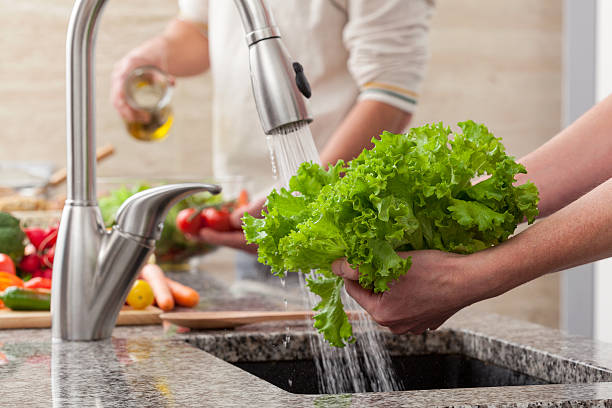In today’s fast-paced world, meals are often consumed in haste, leading to a myriad of health and well-being issues. The concept of savoring food and eating slowly is more than just a pleasant practice; it’s a crucial aspect of mindful eating that can significantly impact physical health, mental well-being, and overall quality of life. This article explores why taking the The Importance of Savoring Food and Eating Slowly is important and how it can benefit you.
Understanding Mindful Eating

Mindful eating is a practice rooted in the concept of mindfulness, which involves paying full attention to the present moment without judgment. When applied to eating, it means being fully engaged with the sensory experience of eating—notice the flavors, textures, and aromas of your food, as well as the feelings of hunger and satiety. Mindful eating encourages eating slowly and savoring each bite, rather than rushing through meals.
Benefits of Savoring Food and Eating Slowly

1. Improved Digestion
The Importance of Savoring Food and Eating Slowly allows your digestive system to function more efficiently. When you eat quickly, you tend to chew less, which means larger pieces of food enter your stomach. This can make digestion more challenging. Thoroughly chewing your food breaks it down into smaller particles, making it easier for your digestive enzymes to process and absorb nutrients. Additionally, eating slowly gives your stomach time to signal your brain that you are full, reducing the likelihood of overeating.
2. Enhanced Nutrient Absorption
Chewing your food thoroughly not only aids in digestion but also helps in the optimal absorption of nutrients. When food is broken down more effectively in the mouth, it ensures that the nutrients are better absorbed in the intestines. This can contribute to overall nutritional health and well-being.
3. Weight Management
Savoring your food and eating slowly can play a crucial role in weight management. Research has shown that people who eat slowly tend to consume fewer calories compared to those who eat quickly. This is because the brain takes about 20 minutes to receive signals from the stomach that it’s full. By eating slowly, you give your body time to recognize these signals, helping to prevent overeating.
4. Improved Satisfaction and Enjoyment
Eating slowly allows you to fully appreciate the flavors and textures of your food. This increased sensory experience can lead to greater satisfaction with your meals. When you savor each bite, you are more likely to enjoy your food and feel more content with importance of portion control. This enhanced enjoyment can contribute to a more positive relationship with food.
5. Better Emotional Well-being
Rushed eating can often be accompanied by feelings of stress or guilt, especially if it’s done in a hurry or in response to emotional triggers. Taking the time to savor your food can create a calming and enjoyable eating experience. This practice can help reduce stress associated with meal times and contribute to a more balanced and mindful approach to eating.
How to Savor Your Food and Eat Slowly

1. Practice Mindful Eating Techniques
To incorporate mindful eating into your routine, start by paying full attention to your meal. Notice the colors, smells, and textures of your food. Take small bites and chew thoroughly, focusing on the taste and sensations in your mouth. Avoid distractions such as television or smartphones during meals to enhance your awareness of the eating experience.
2. Use Smaller Plates and Utensils
Opting for smaller plates and utensils can help you eat more slowly. Smaller portions can encourage you to take smaller bites and chew more thoroughly. Additionally, using utensils that require more effort to handle can naturally slow down your eating pace.
3. Set a Relaxed Eating Environment
Creating a calm and pleasant eating environment can encourage slower eating. Set the table nicely, use pleasant lighting, and eliminate distractions. A relaxed atmosphere can help you focus on your meal and enjoy the process of eating.
4. Take Breaks Between Bites
Take deliberate breaks between bites to appreciate the flavors and textures of your food. Put your utensils down between bites and take a moment to savor the taste. This practice can help you slow down and be more mindful of each mouthful.
5. Listen to Your Body’s Hunger and Fullness Cues
Pay attention to your body’s hunger and fullness signals. Eat when you are hungry and stop when you feel satisfied, not when you are full. Learning to listen to these cues can help you avoid overeating and develop a healthier relationship with food.
Common Challenges and Solutions

1. Busy Lifestyles
Many people struggle with finding time to eat slowly due to busy schedules. To overcome this challenge, consider setting aside specific times for meals and planning your day to accommodate these breaks. Even short, mindful meals can make a significant difference in your eating habits.
2. Social Pressures
Eating slowly in social settings may sometimes feel awkward. To address this, communicate with your friends and family about your intention to practice mindful eating. Most people will understand and may even join you in adopting this healthier approach to eating.
3. Habitual Rushed Eating
Breaking the habit of rushed eating requires conscious effort. Start by incorporating mindful eating practices into one meal a day and gradually extend it to other meals. With consistent practice, eating slowly can become a natural part of your routine.
Conclusion
The Importance of Savoring Food and Eating Slowly is a practice that offers numerous benefits for both physical health and emotional well-being. By paying attention to the sensory experience of eating and being mindful of hunger and fullness cues, you can improve digestion, enhance nutrient absorption, manage weight, and increase overall satisfaction with your meals. Incorporating these practices into your daily routine can lead to a more balanced and enjoyable approach to eating, contributing to a healthier and happier lifestyle.
Frequently Asked Questions (FAQ)
1. What are the signs of eating too quickly?
Eating too quickly can manifest in several ways, including frequent overeating, indigestion, bloating, and discomfort. You may also find yourself feeling less satisfied with your meals and more prone to snacking between meals.
2. How can I remind myself to eat slowly?
Setting reminders or using specific techniques can help. For example, you can use a timer to pace your meal, practice placing your utensils down between bites, or create a ritual around meal times that encourages mindfulness.
3. Can eating slowly help with specific digestive issues?
Yes, eating slowly can alleviate common digestive issues such as acid reflux, bloating, and gas. Thoroughly chewing your food helps break it down more efficiently, reducing the strain on your digestive system and improving overall digestion.
4. How long should it take to eat a meal slowly?
There’s no strict rule, but a general guideline is to take about 20-30 minutes for a meal. This allows ample time to chew thoroughly, savor the flavors, and listen to your body’s hunger and fullness signals.
5. Are there specific foods that are better to eat slowly?
While it’s beneficial to eat all types of food slowly, foods that require more chewing, such as fibrous vegetables and whole grains, can particularly benefit from mindful eating. These foods are more likely to enhance the digestive and satiety benefits when eaten slowly.





